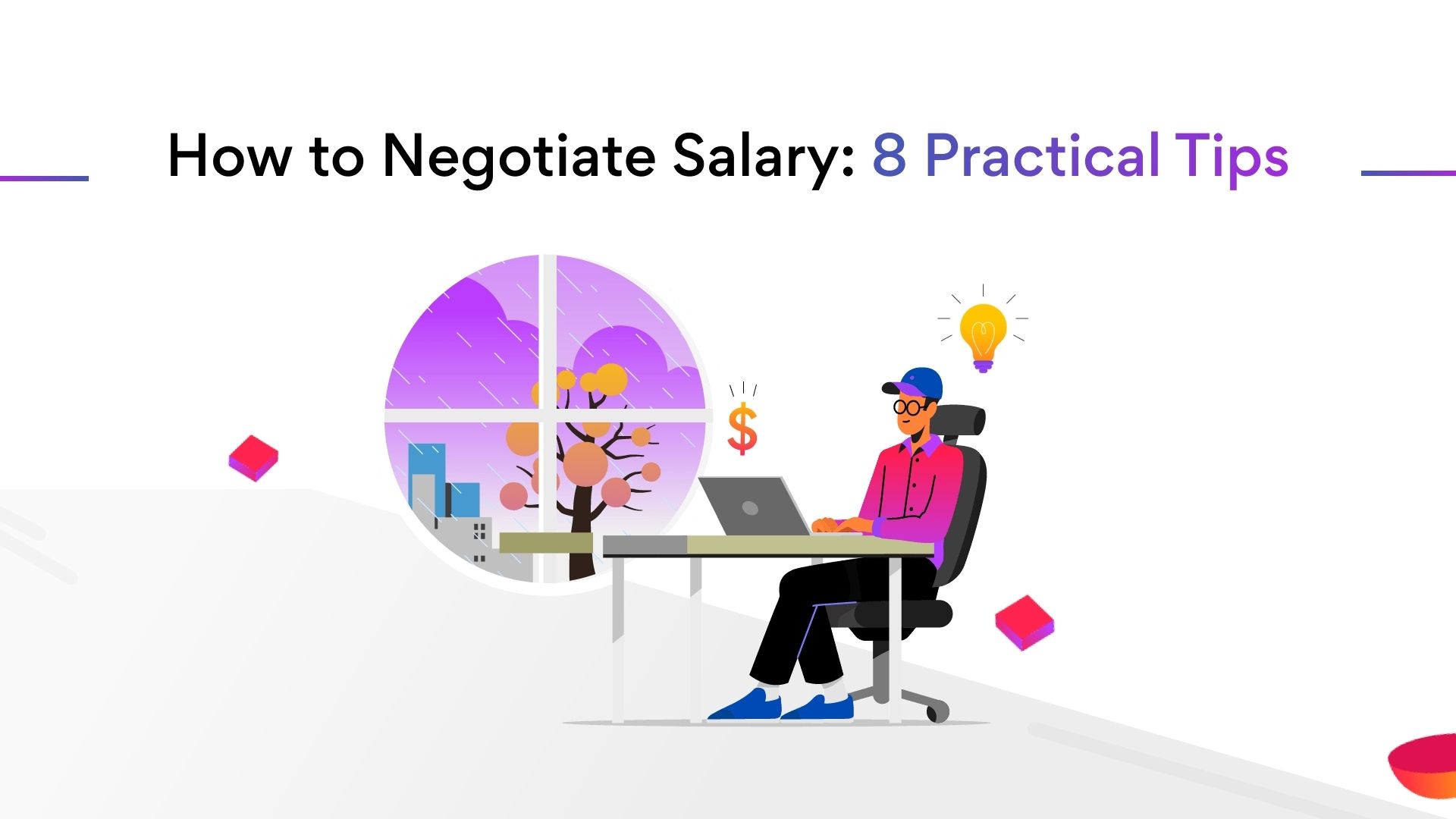How to Deal With Salary Negotiation?
Whether you’re starting a new job or gunning for a promotion in your current role, salary negotiation can be scary.
According to a survey, only 37 percent of employees negotiate their salary, whereas 18 percent never do so. The worst part? Forty-four percent of respondents said that they have never brought up the topic of a raise during their performance assessments.
Many people get uneasy during salary negotiations and take the first number offered without questioning it. Trepadition about negotiating a salary is a mistake since organizations leave some room for negotiation during the hiring and appraisal process and usually pitch a figure that’s lower than what they’ve budgeted for the position.
So, how do you start a salary negotiation with your employer? This blog post shares practical tips to help you negotiate your salary in the best possible way.
-
Study industry salary trends before diving into salary negotiation
If you want to earn the salary you deserve, you must know the market rate for your position in your geographic location before the interview. Platforms like Payscale, Glassdoor, LinkedIn, etc., can help you with your research. Feel free to ask for insights from family and friends working in your field. -
Look at the total package
Always inquire about the employee benefits provided along with your base salary. Compensation benefits may include insurance, extra leaves, flexible work policies, paid vacations, bonuses, incentives, gifts, and more.
Salary negotiation: Always look at the full package
-
Use pauses for advantage
Pause before responding when the employer makes the first offer. While you buy some time to consider the offer, the employer is under pressure to either explain why they suggested that number or make a more exciting offer.
Related post: Three Things Software Developers Look For While Finding a Job -
Consider other components excluding basic compensation
Never give up during the salary negotiation. If HR tells you that a particular amount is the maximum basic compensation for the position, request a sign-on bonus and/or a six-month increase rather than a yearly appraisal. Push back if the employer denies your request, but make sure to explain why you’re doing so. This tactic could get you more flexible working hours, health insurance, or a higher variable bonus. -
Be specific about what you want during the salary negotiation
Mention a specific amount or range in your email while making a counteroffer to the hiring manager. This approach lets the recruiting manager know what you’re looking for and shows that you know your worth and have done your homework.
Also, as with any other business communication, make sure your email is sharp and concise. A lengthy salary negotiation email shows that a candidate is attempting to oversell themself.
Related post: Turing Review: How Much Do Developers Earn with Turing? -
Explain why you deserve more
List down the reasons you deserve a higher salary while making the counteroffer. Use this moment to demonstrate your abilities, expertise, and potential but present yourself modestly while doing so.
Explain why you deserve more
Don’t bring up personal issues like student loans or living costs in your pay negotiation email. Remember that the recruiter is interested in knowing how you contribute to the company, not solving your personal problems. -
Address all the points in one go
When negotiating on several fronts like compensation, title, bonus, perks, or reimbursements, open conversations about them simultaneously, and not one after the other. This way, the employer gets a clear understanding of what you want.
Most importantly, quote a higher figure than what you require to give yourself room to surrender later. -
Take your time
Don’t accept or reject an offer on the spot. The former wastes money that could have been yours. The latter makes you lose out on additional benefits that could have made the final offer.
Most importantly, always ask for a written offer. No reasonable employer will deny your request for a written offer. If they do, well, that’s a major red flag.
Related post: ‘How Do You Get a Job at Turing’ and Other Questions Answered.
Salary negotiation: An example

Salary negotiation example
Suppose the company has suggested a starting pay as part of your informal verbal job offer. Let’s say the number on the table is $50,000, which based on your research, is a little low. Consider this figure as a starting point for salary negotiations. Keep in mind that the employer has deliberately suggested a low figure in the hopes of negotiating.
In this case, you can start the negotiation like this:
Employee: I’m excited about this opportunity, and I’m sure I’ll be a good fit for the team. I wonder if we can look at a slightly higher beginning pay of $60,000. As per my research, this is the industry average for this role, and I’m convinced you’ll be pleased with how much I can give to the team.
You’ll probably be nervous while saying this, but keep calm. Don’t worry about the offer getting retracted because that rarely happens. However, the recruiting manager may push back on you a little during the negotiation.
Recruiting Manager: I’m delighted you’re interested in the role, and the team is excited to be working with you as well. The post, however, is budgeted at $50,000.
Employee: I’m aware of budgetary constraints, and I’d like to join you feasibly. Though I am interested in joining your team, I’d like to see if $60,000 is possible given my background and skill level.
Now, it can be unsettling to wait and see what happens next. The negotiation can go two ways from here.
The manager hammers the final nail in the coffin by saying something like this.
Recruiting Manager: I’m sorry, but this is our final offer.
Well, at least you tried. However, you’re likely to hear something like this in most cases.
Recruiting Manager: Okay, I’m not sure if this will fit into our budget, but I’ll look into it. By tomorrow, we’ll have an answer for you.
It’s possible that the hiring manager went back to the HR team and gained approval to land a figure that’s closer to your expectations.
Recruiting Manager: Given how much we all want you on our team, I was able to gain clearance for a starting salary of $55,000. But that’s the last figure we can offer.
You’re free to take the final call at this point.
Related post: ‘The Compensation I Get At Turing Is Better than What I Could Get in Moscow,’ Says Ivan in His Turing.com Review
Conclusion
These tips can be rewarding if you follow them diligently. Salary negotiation may not be fun, but consider it necessary for building a successful career. Remember, the primary reason employees don’t earn well isn’t because they don’t deserve it. It’s because they don’t bother to ask for higher compensation.
If you are unsatisfied with your current role and looking for a new job opportunity, apply to Turing. Turing helps you join a global network of skilled developers and find a full-time, long-term, high-paying remote software job with a US-based company.
Join a network of the world's best developers and get long-term remote software jobs with better compensation and career growth.












